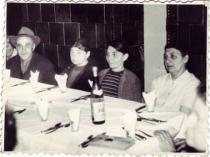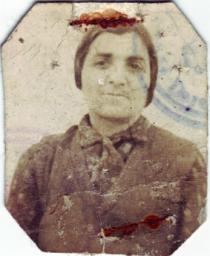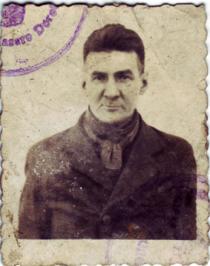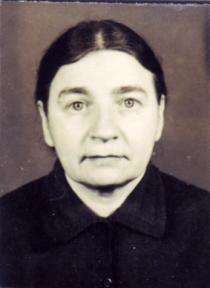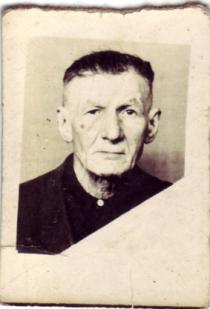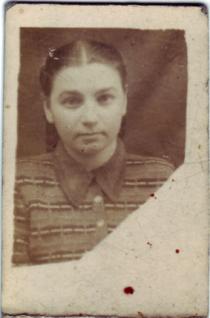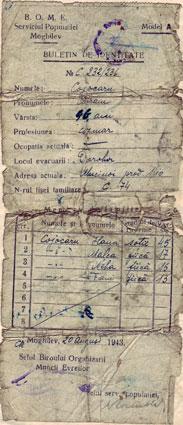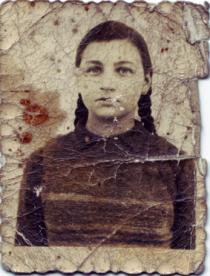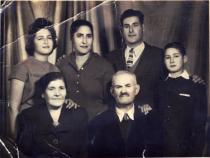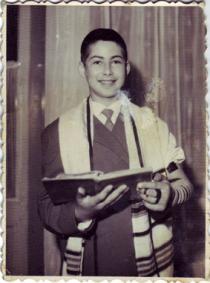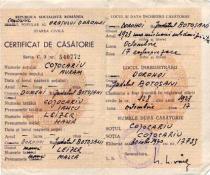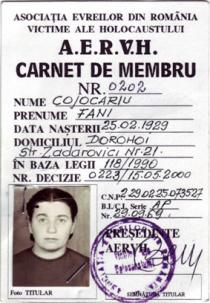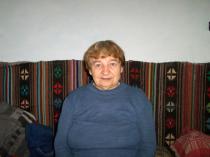This is a photograph of my father, Avram Cojocariu. I don't know how old he might have been when this photograph was taken. Perhaps he wasn't that old, but how withered he was… He was already suffering from various illnesses, and time has changed him.
After the war father developed a sclerosis as well, he became soft-minded. He had a case of hernia for about 30 years, and was afraid to undergo surgery. We lived together, how could I not know his situation… He was very fond of Iasi, for that's where he did his military service and where he lived, so he went there once, to see some old acquaintances. And he was struck by a sudden seizure, he lay down in the street, just like that, for he couldn't bear the pain, that's how bad it was. And people saw that, they called an ambulance, and they took him to the hospital. When he woke up in the hospital, he said: "No, I will not undergo surgery!" For all his life he was afraid of the knife. But the doctor said: "No, now that you are here, we must perform surgery." And he might have lifted a block of wood, something heavy, when he returned home, and his operation opened up. He liked to work - as Christians do, not as Jews do: he did everything around the house, he didn't have someone else do these things, he didn't pay someone else, he did these things himself. There was a very good Jewish surgeon here, in Dorohoi, and it was he who operated him the second time. The third time it was the same. But he told him on the last occasion: "I can't guarantee anything anymore." He told him straight to his face. And his last years were very tormented. He started smoking when he was 12 - he told us. And he still smoked while he was ill. But this is what happened! A particularly nasty growth appeared on his esophagus, a tumor, for he had seizures during the night on many occasions, he choked, he couldn't breathe, and we rushed to the hospital at 1, 2, 3 o'clock in the night in order to commit him. There was a hospital right on our street, near our parental home. I know that he carried on like that for 4 years. And he wasn't allowed to eat anything, for the food didn't reach his stomach, it stopped in his chest area. He died at 73, in 1971.
My father is buried here, in Dorohoi, at the Jewish cemetery. The Jewish custom is to dress the dead in white. Special clothes are tailored for this occasion, there are tailors who still make them. We sat shivah after our father died, all three of us. We sat shivah both after our mother and after our father. You place something on the floor, a carpet, a pillow, something, and you sit there for 8 days. And who could come to bring us food? We had to cook ourselves, we had to stand up, cook. And they say you aren't allowed to do that, it's a sin to stand up from there. But since we couldn't rely on anyone to bring us food… But I don't know anymore, whether you're supposed to sleep there during the night, or you can stand up and sleep on the bed. I don't remember that, I don't remember how we did that. And we paid someone, a Jew like us, who actually had a connection to our family, he was actually a friend of my father's as a young man - his name was Rabinovici, he had a store in the old days -, and he recited prayers for my father for an entire year. And that's what he said: "It would be good if you had his name mentioned in the prayer for the dead every month at the synagogue." And every month throughout the year I would buy liquor, crackers, according to Jewish customs.

